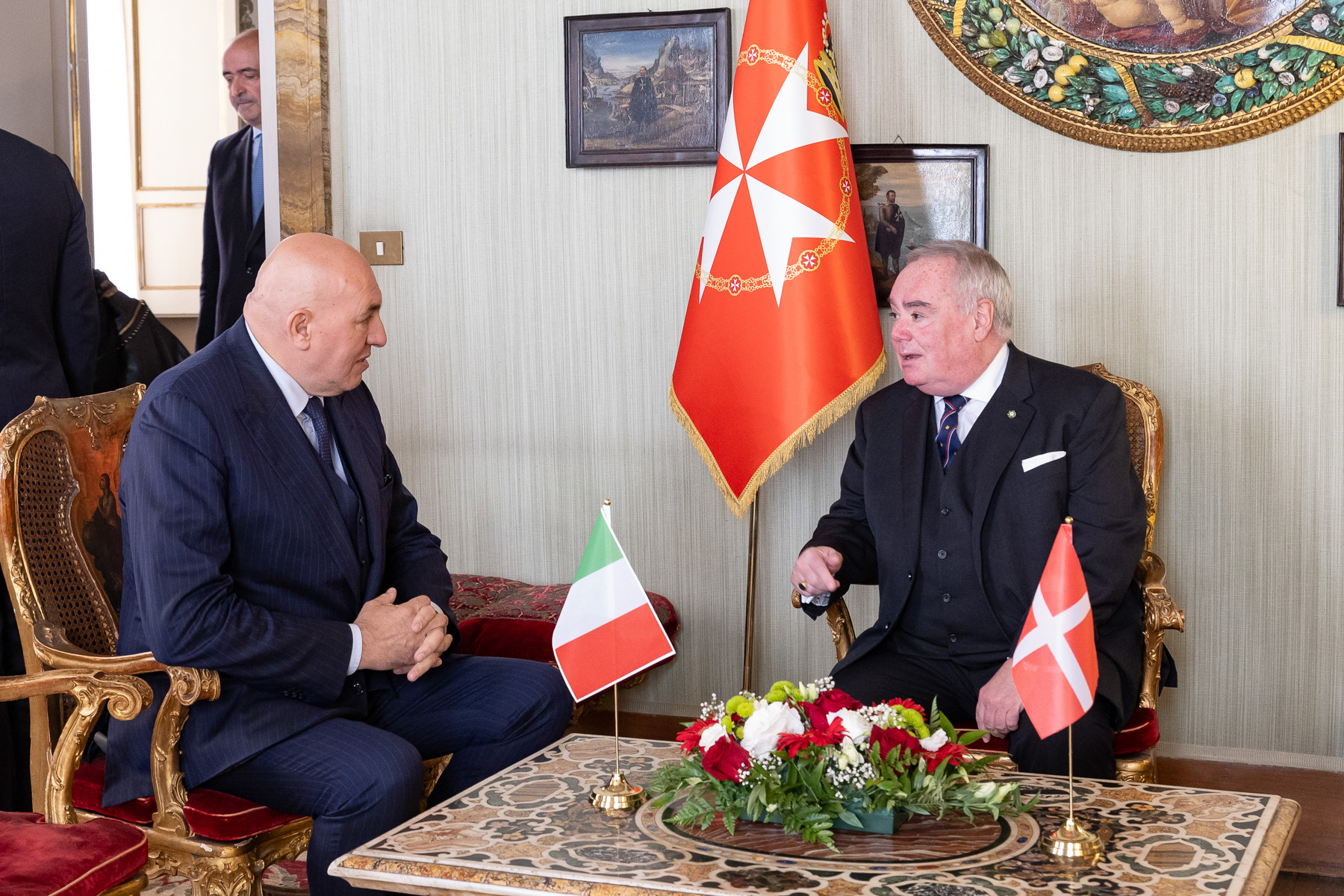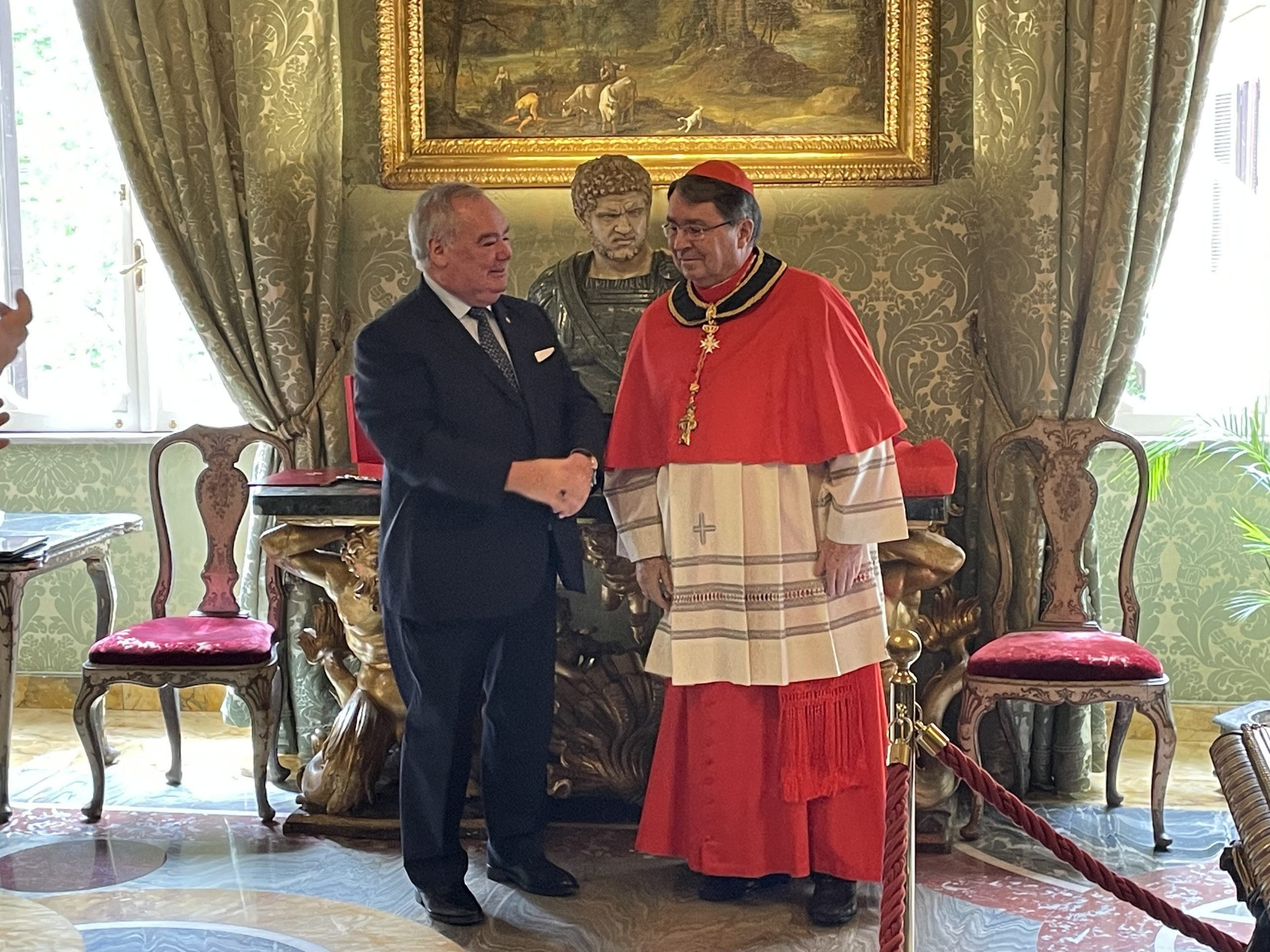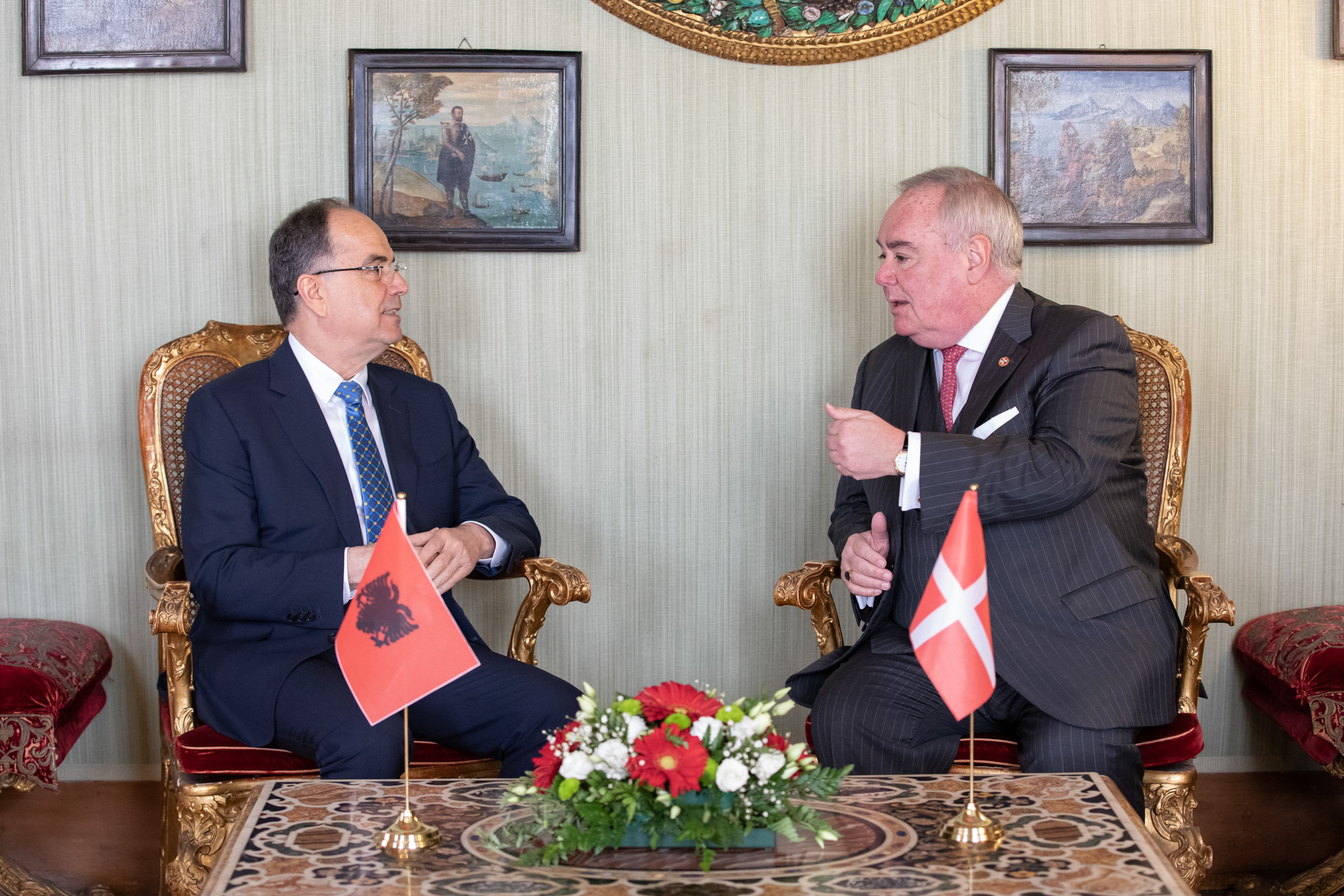Order of Malta launches “Doctor to Doctor” project bringing together experts to share best practices in the fight against Covid 19 in Middle East regions
Rome 17 April 2020 – How is the pandemic Covid 19 impacting in conflict areas in some Middle Eastern countries where access to medical care and distribution of sanitary items is scarce? How is Palestine responding to a possible increase in the number of cases detected, and how can the health system prepare to sharpen an efficient response in spite of the poor living conditions? To address these urgent matters the government of the Sovereign Order of Malta together with the London based think tank Forward Thinking launched the project “Doctor to Doctor”, connecting on a virtual platform health expert to share knowledge and promote a better understanding of best practices, protocols and strategies to adopt in order to contain the Coronavirus infection among the population. The project is intended to help countries which are enduring occupation, political unrest, economic challenges, ongoing conflicts or the effects of crisis in neighboring countries, deal with the pandemic, and will be repeated in the coming days with other countries, starting with Jordan and Lebanon.
Until now, two separate workshops have been convened between medical professionals from Palestine, and a pool of Italian experts in the front line in managing the health crisis posed by Covid 19. In addition to doctors and professors specializing in pharmacology such as Doctor Lucio Rovati, Ambassadors and heads of organizations of the Order of Malta, Guido Bertolaso – former head of the Italian Civil Protection- and special consultant for the Lombardy region in the Covid 19 emergency, took part in the first online conference. He insisted that social distancing among the population and a sharpening of the isolation measures already existing are key in containing the spread.
Although Gaza has under 20 confirmed cases of Covid 19, the extremely high population density and poor infrastructure makes social distancing measures extremely difficult. To continue the quarantine procedure effectively, Gaza needs enough tests to make sure that nobody is released prematurely from quarantine, enough medication to treat the symptoms of patients entering from other countries, and enough PPE (personal protective equipment) to protect the medical and security staff at the quarantine centres.
In the event of an outbreak in Gaza, the high population density would likely result in many more cases, and for many cases to go unnoticed until severe symptoms manifest, requiring more patients to be admitted to expensive Intensive Care Units, which are scarce in the region.
Order of Malta’s Ambassador to Palestine, Michele Bowe, also took part in the online discussion pointing out that the work of the Holy Family Hospital in Bethlehem, which has been run by the Order of Malta for 30 years, is bracing for the epidemic. Being the only hospital of the region with a NICU (neonatal intensive care unit), capable of delivering and saving the lives of babies born before 32 weeks gestation , its functioning is essential, given that infant mortality in the greater region is currently five times that of more developed countries and can be attributed to a lack of prenatal care, poverty and barriers to health care The added strains of occupation have led to a rise in preterm births, increasing the importance of routine prenatal check-ups which have sharply decreased since the lockdown.
“Covid 19 has caused the total closure, geographic isolation, and economic lockdown of the Bethlehem region. Families do not have enough money for food, let alone medical care. At the Holy Family Hospital important medical equipment is lacking, putting in danger the lives of our newborn babies, many delivered before 32 weeks. There is also a big shortage of masks and a problem with blood availability. We are pushed to our limits” said Michelle Bowe.
Covid 19 represents a common enemy for those living in Israel and Palestine. It does not respect borders, factional affiliation, political party nor checkpoints. Therefore, a bilateral public health response is needed to curb its spread. The crisis presents an opportunity for all parties in the Israeli-Palestinian conflict to re-examine their relationships to facilitate an effective, joint medical response to the virus.









